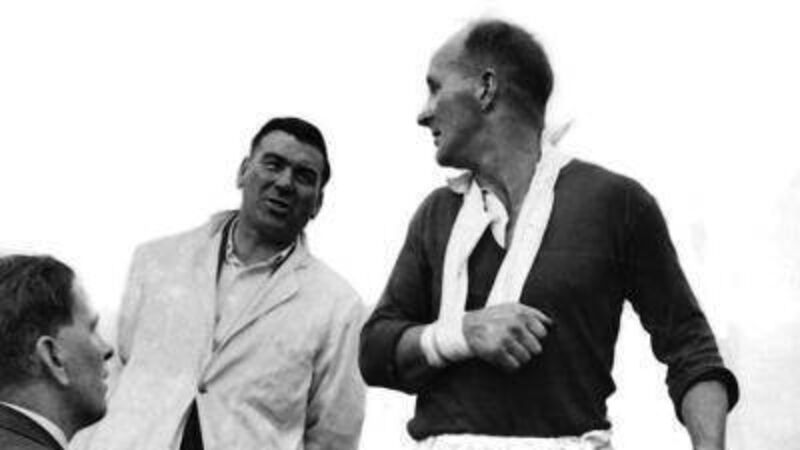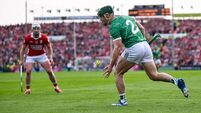Paul Rouse: 'In hurling terms, Cork is Tipperary with a sense of humour'

The famous Mackey vs Ring photograph taken at the 1957 Munster final by Justin Nelson. Mick Mackey, an umpire for the game, allowed a Tipperary goal which the referee over-ruled. Christy Ring, leaving the pitch injured, has words with Mackey. taken from Mick Mackey — Hurling Legend in a Troubled County by Henry Martin, published by The Collins Press, 2011











